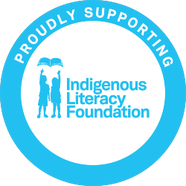Emu Trekkers is committed to improving Indigenous literacy rates in Australia and is proud to partner with the Indigenous Literacy Foundation to make this a reality.
Since commencing hikes in September 2017, Emu Trekkers has donated $100,000 AUD, or the equivalent of 10,000 culturally-appropriate books, delivered into the hands of children in remote Indigenous communities in Australia.
Emu Trekkers is committed to improving Indigenous literacy rates in Australia and is proud to partner with the Indigenous Literacy Foundation to make this a reality.
Since commencing hikes in September 2017, Emu Trekkers has donated $100,000 AUD, or the equivalent of 10,000 culturally-appropriate books, delivered into the hands of children in remote Indigenous communities in Australia.
How is the money used?
The Indigenous Literacy Foundation invests in Aboriginal and Torres Strait Islander remote Communities to provide the tools and resources they request to shape the direction of their children’s literacy futures.
Emu Trekkers' donations go towards the Indigenous Literacy Foundation's Book Supply program. Access to books in remote Communities is challenging, as there are often no libraries or bookstores. Indigenous Literacy Foundations's Book Supply program provides new, culturally relevant books to remote Communities across Australia. Schools, Community health, and women's centres working in remote Communities, can also order books to distribute to children and families.
In 2023, the ILF distributed 116,400 culturally relevant books into 424 remote Communities . More than 50% of the books feature Indigenous authors and illustrators.
Emu Trekkers' donations go towards the Indigenous Literacy Foundation's Book Supply program. Access to books in remote Communities is challenging, as there are often no libraries or bookstores. Indigenous Literacy Foundations's Book Supply program provides new, culturally relevant books to remote Communities across Australia. Schools, Community health, and women's centres working in remote Communities, can also order books to distribute to children and families.
In 2023, the ILF distributed 116,400 culturally relevant books into 424 remote Communities . More than 50% of the books feature Indigenous authors and illustrators.
"We simply could not achieve our work in remote Communities without the ongoing support of organisations like Emu Trekkers, who share our vision of equity of opportunity. We are all working towards the bigger outcome of giving children in remote Communities the same opportunities that children in cities have: access to education, jobs and wellbeing."
BEN BOWEN, CEO, INDIGENOUS LITERACY FOUNDATION

